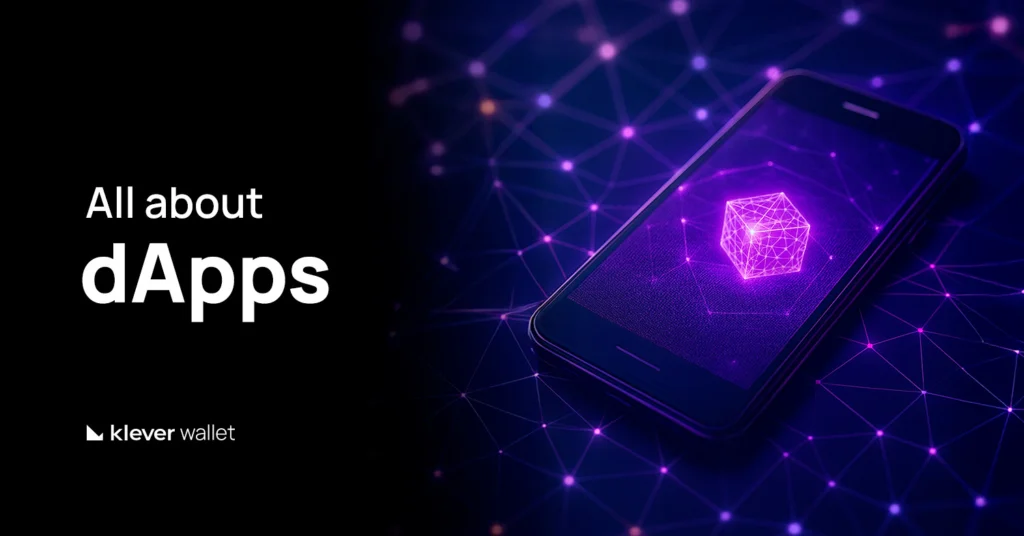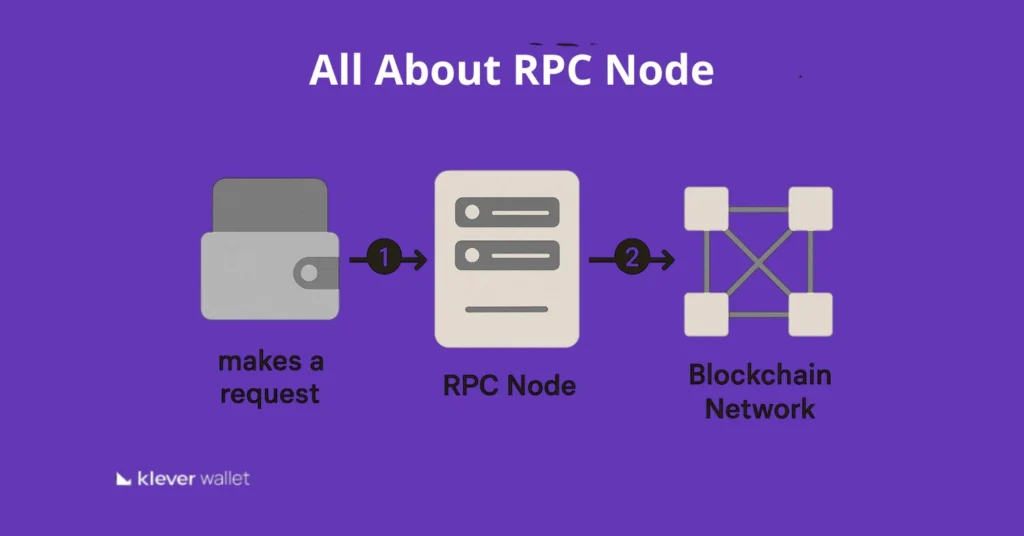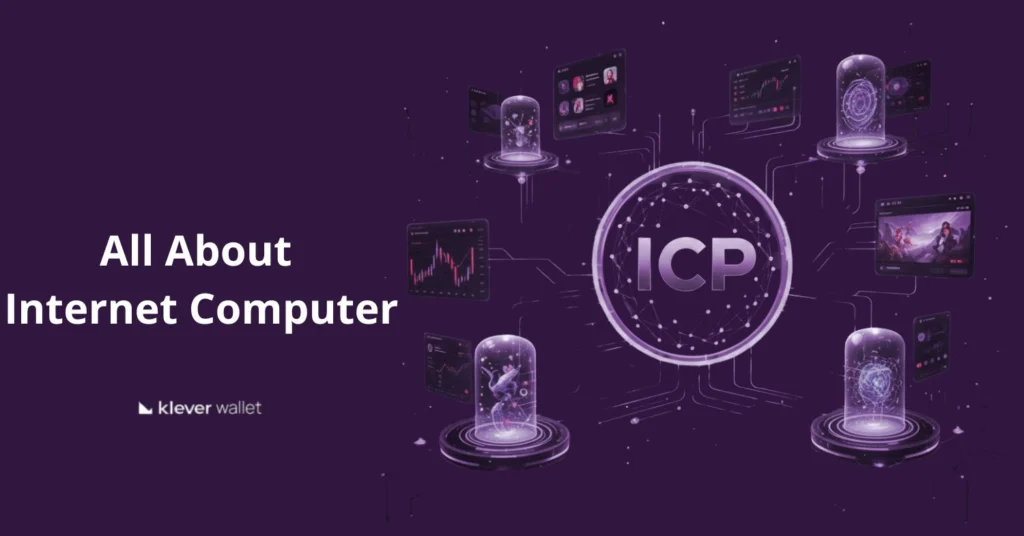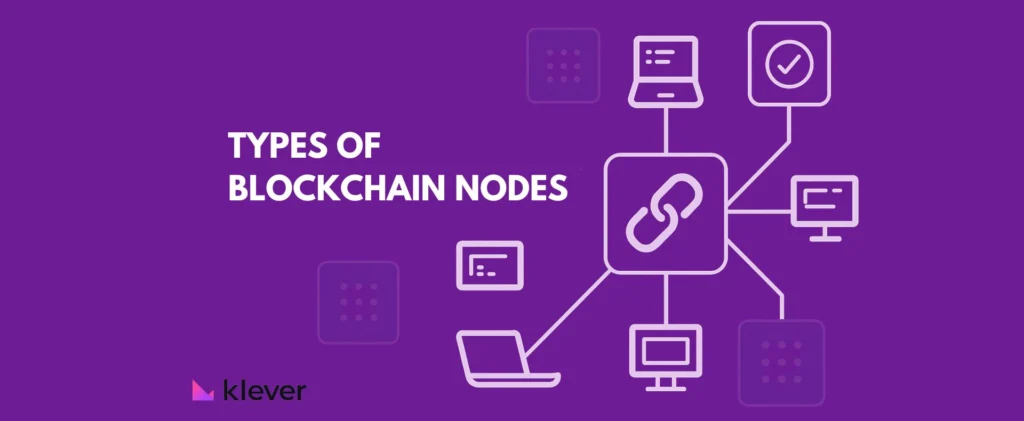
What Is a dApp?
A dApp, or decentralized app, is like a regular app—but instead of being controlled by one company or stored on one server, it runs on a blockchain, which is a network shared by many computers. Instead of using a traditional backend, dApps use something called smart contracts. These are bits of code that run automatically when certain things happen—like sending money when a condition is met. Popular blockchains that support dApps include Ethereum, Solana, and BNB Chain. Because dApps live on the blockchain, they can’t be easily changed or shut down by a single person or company, and anyone can use them from anywhere.Key Features of dApps
- Open-source and transparent code Anyone can see how the dApp works because its code is public. This builds trust—users can verify what happens behind the scenes instead of relying on promises from a company.
- No central control — users own their data There’s no single company controlling user data or app decisions. Each person keeps ownership of their information and digital assets.
- Runs on blockchain networks All operations happen directly on decentralized networks, ensuring security, transparency, and immutability.
How Do dApps Work?
dApps work just like regular apps on the surface — you click, type, or tap to do things — but behind the scenes, everything runs on the blockchain instead of a company’s private server. Here’s what makes them work:- Frontend (User Interface) This is the part you see and interact with, built using common web languages like HTML, CSS, and JavaScript. It looks just like a normal website or app.
- Smart Contracts (The Backend Logic) Instead of storing data and rules on a company’s server, dApps use smart contracts — bits of code that live on the blockchain. These contracts automatically perform actions when specific conditions are met, like sending crypto or updating ownership records.
- Wallet Connection To use a dApp, you connect a crypto wallet such as Klever Wallet. The wallet is what lets you log in, confirm transactions, and manage your digital assets — without usernames or passwords.
- Gas Fees Every time a transaction happens on the blockchain — like buying an NFT, swapping tokens, or joining a DAO — a small gas fee is paid in the network’s native coin (for example, ETH on Ethereum, BNB on BNB Chain, or TRX on TRON). This fee goes to the network validators who process the transaction.
- Oracles (External Data Feeds) Some dApps need information from outside the blockchain — like real-world prices, weather data, or sports results. That’s where oracles (like Chainlink or Band Protocol) come in, safely bringing off-chain data onto the blockchain so smart contracts can use it.
Use Cases: What Are dApps Used For?
Decentralized applications power major Web3 innovations. Here are some of the most common use cases:1. DeFi (Decentralized Finance)
DeFi, short for Decentralized Finance, is one of the most popular uses of dApps. It replaces traditional financial services—like banks or brokers—with blockchain-based applications that anyone can access.- Lending and borrowing: Platforms like Aave and Compound let users lend their crypto to earn interest or borrow funds by using their digital assets as collateral.
- Decentralized exchanges (DEXs): Apps such as Uniswap and PancakeSwap allow users to trade cryptocurrencies directly from their wallets—no intermediaries, no account sign-ups.
- Yield farming and staking: Users can lock or “stake” their tokens in liquidity pools to earn rewards, similar to earning interest on a savings account but with higher potential returns (and higher risks).
2. NFTs & Gaming
dApps have completely changed how people create, trade, and play in the digital world through NFTs and blockchain games.- Minting and trading NFTs: Platforms like OpenSea and Magic Eden allow users to create (“mint”), buy, and sell non-fungible tokens (NFTs) — unique digital items that can represent art, collectibles, music, or even in-game assets.
- Blockchain games: Titles such as Axie Infinity and StepN use dApp technology to give players full ownership of their characters, items, and rewards. Everything a player earns or buys is stored on the blockchain, not on a game server.
- Play-to-earn economies: In these games, players can earn crypto or NFTs by completing missions, winning battles, or contributing to the ecosystem — turning gameplay into a source of real digital income.
3. DAOs & Governance
DAOs — or Decentralized Autonomous Organizations — are community-run organizations that operate entirely through smart contracts on the blockchain. Instead of having a CEO or a small board making decisions, all members can participate and vote on key actions.- Community-managed platforms: Every participant can propose ideas, vote on decisions, and help shape the project’s direction. Examples include funding new features, adjusting fees, or choosing new partnerships.
- Voting on protocol upgrades: DAOs replace traditional company structures with transparent, blockchain-based voting systems. Token holders cast votes directly on-chain to decide upgrades, policy changes, or fund allocations.
4. Identity & Credentials
dApps are also being used to create safer and more private ways to manage digital identity and credentials.- Self-sovereign identity (SSI): This concept allows individuals to control their personal data—like name, ID, or professional history—without depending on a central authority. With SSI dApps, users can decide what information to share and with whom, reducing the risk of data leaks or misuse.
- On-chain certifications: Educational institutions and companies can issue blockchain-based certificates that prove skills, diplomas, or achievements. Because these records are stored on the blockchain, they’re verifiable, permanent, and tamper-proof.
5. Supply Chain & Logistics
dApps are transforming how companies track and verify the journey of products — from production to delivery — using blockchain transparency.- Product traceability: By recording every step of a product’s journey on the blockchain, businesses and consumers can confirm where it came from, how it was made, and whether it meets sustainability or quality standards. For example, a coffee brand can prove its beans were sourced ethically.
- Tamper-proof records: Once data is stored on the blockchain, it can’t be changed or deleted. This prevents fraud, ensures authenticity, and builds trust between producers, suppliers, and customers.
Industry Stats (2025)
According to DappRadar (Q1 2025):- 24 million daily active wallets using dApps
- AI-enabled dApps grew 29% quarter-over-quarter
- DeFi: TVL fell 27% amid market volatility
- NFT activity dropped 24%, reflecting broader macro trends
Benefits of Using dApps
- Censorship-resistant: no single entity can block access or shut the app down.
- User-owned data: users hold their private keys and maintain full custody of their digital assets.
- Open & transparent: every action and transaction is verifiable directly on the blockchain.
- Composability: dApps can be combined like “Lego blocks” to create new services and integrations.
- Global access: anyone with a crypto wallet can use them from anywhere in the world.
Challenges of dApps
- Scalability issues on some blockchains (e.g., Ethereum gas fees);
- Poor UX for non-technical users;
- Smart contract exploits and hacks;
- Regulatory uncertainty;
- Low adoption without incentives or liquidity.
Trends in dApps for 2025 and Beyond
- AI-integrated dApps
- Cross-chain dApps using bridges like Wormhole or LayerZero
- ZK-powered dApps for privacy and scalability
- Social dApps (e.g., Farcaster, Lens Protocol)
- Regulation-ready dApps with built-in compliance
Use dApps Safely with Klever Wallet
dApps represent a new frontier for the internet—one where ownership, privacy, and transparency are built into the code. While challenges remain, the potential is massive. From finance to gaming to identity, decentralized applications are reshaping how we interact online—and 2025 is just the beginning. Want to start using dApps? Klever Wallet makes it easy to connect, explore, and trade on DEXs like Uniswap, PancakeSwap, and more.- Built-in security
- Mobile-friendly interface
- Non-custodial control




